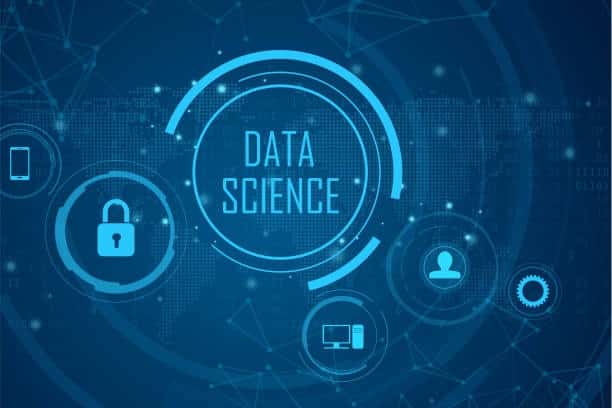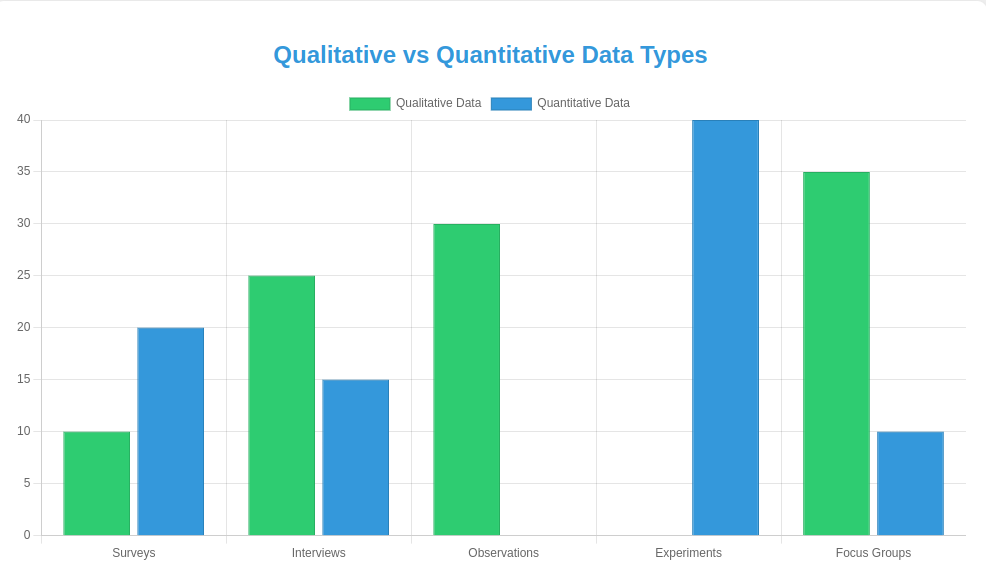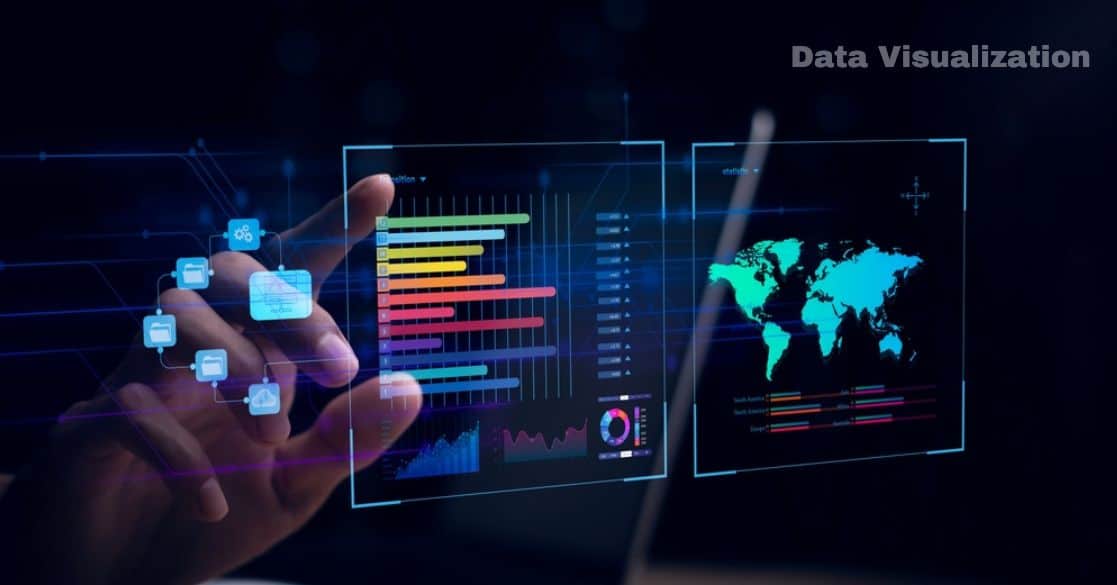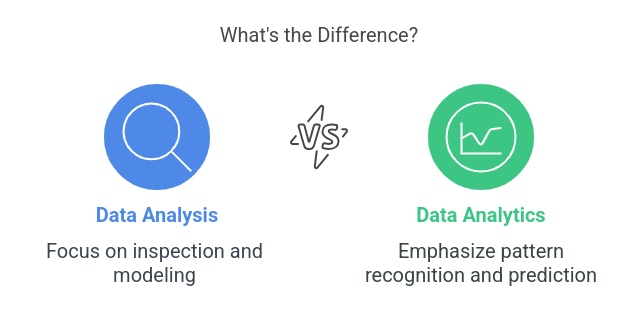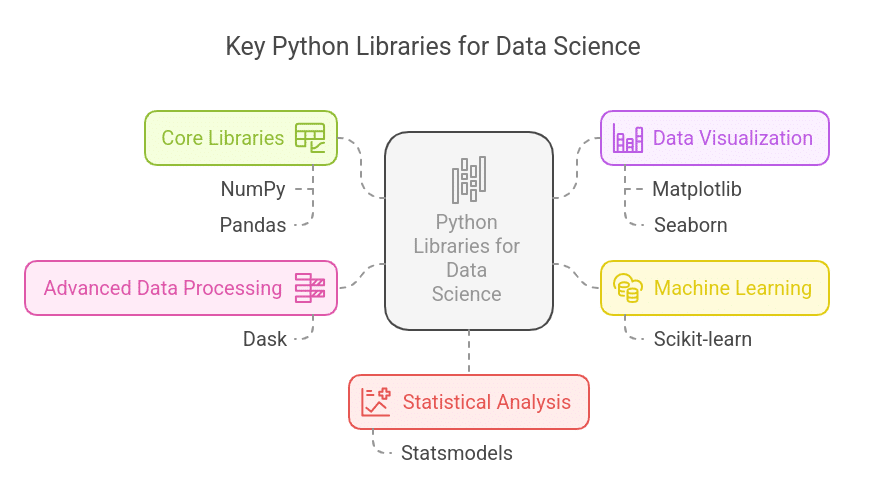Have you ever wondered how businesses predict trends, optimize operations, or develop innovative solutions to everyday challenges?
The answer lies in data science, a field helping industries uncovering actionable insights from vast datasets.
With demand for data scientists projected to grow by 36% by 2033, it’s clear that mastering real-world problem-solving is essential for success in this domain.
But how can aspiring professionals gain the skills needed to tackle real-world challenges effectively?
In this blog, we explore why solving real-world problems is the backbone of data science and how applied data science courses equip learners with the tools, techniques, and confidence to excel in practical scenarios.
Why is Real-World Problem Solving Essential in Data Science?
Data science goes beyond analyzing numbers; it’s about extracting actionable insights from data to solve pressing challenges in the healthcare and finance industries.
Solving real-world problems is at the core of practical data science, bridging the gap between theory and practice. Here’s why it’s indispensable:
1. Relevance to Industry Needs: Companies are not looking for data professionals who only know algorithms or statistical methods, they seek individuals who can apply these tools to solve real-world issues like reducing customer churn, improving product recommendations, or forecasting market trends. This makes the ability to solve practical problems a sought-after skill in the job market.
2. Decision-Making Power: Data scientists who focus on real-world problem-solving provide actionable insights that help organizations make informed decisions. For example, a retail company can use customer data to optimize inventory or personalize marketing campaigns, directly impacting profitability and customer satisfaction.
3. Adaptability to Diverse Challenges: Every business and industry has unique challenges, and datasets often come with noise, biases, or incomplete information. Solving real-world problems teaches data scientists to adapt and develop tailored solutions, making them versatile professionals capable of thriving in any industry.
4. Bridging Theory with Application: While theoretical knowledge is foundational, applying that knowledge to real-world problems demonstrates a deep understanding of data science concepts. For example, implementing machine learning models to detect credit card fraud or using natural language processing for sentiment analysis provides learners with invaluable hands-on experience in their careers.
The ability to solve real-world problems makes data scientists indispensable to organizations, highlighting the importance of applied data science courses.
These courses ensure learners gain practical exposure to real-world challenges, preparing them to excel in their roles and drive impactful change.
Essential Elements of Applied Data Science Program?
In applied data science, learners go beyond lectures and get hands-on experience with projects, case studies and tools.
They often learn about the practical applications of data science techniques in real-world situations, which helps improve their implementation skills.
Here are a few prospects for an excellent applied data science course:
1. Practical Projects and Case Studies
Data science courses outside of applied data science integrate project and case study based content which they model after the real world. Say you have a project of building a recommendation system for an e-commerce platform or customer churn prediction for a telecom provider.
2. Hands-on Experience with Tools
The focus is on proficiency with high rated courses in Python for data manipulation; R for statistical analysis; and Tableau for data visualization. Active use of these tools enables a learner to prepare for a data science role.
3. Collaboration and Teamwork
Collaboration is the most common thing in the data science workplace. Team work on projects is prevalent within many courses, and the skills that we learn from it (e.g. effective communication, breakdown of roles, project management) are exactly what we need to solve larger, more complex data science problem sets.
How Great Learning Applied Data Science Courses Focus on Practical Skills?
Great Learning applied data science courses are structured around the concept of learning by doing. Once you get started with your learning journey, you will be able to learn practical skills by:
1. Real-World Projects and Capstones
Each of these programs includes a number of industry relevant projects and a capstone integrating knowledge and skills. Activities focus on problems a learner would encounter in the professional world and allow the learner to solve complex problems and make data driven recommendations with confidence.
2. Access to Industry-Standard Tools
Great Learning’s programs are associated with hands-on training with many cores like Python, TensorFlow, SQL, and cloud computing services. Slipping these tools into the hands of learners who use them in a learning environment empower them better to tackle the technical needs of data science roles.
3. Guided Mentorship and Peer Interaction
Mentorship by industry professionals helps learners receive feedback and improve their skills through projects, hear about best practices, and more. At the same time, interaction with peers fuels team spirit and networking skills, which are prerequisites of a data science career.
4. Focus on Industry-Relevant Skills
The curriculum offered by Great Learning is in a perfect sync with industry demands. All crucial in today’s job market are: machine learning, natural language processing, deep learning, and data visualization.
Check Out Our Free Courses To Kick Start Your Learning Journey
- Python for Data Science Free Course
- TensorFlow Python Free Course
- SQL for Data Science Free Course
- Crash Course in Cloud Computing Free Course
- Introduction to Natural Language Processing Free Course
- Introduction to Deep Learning Free Course
Great Learning Applied Data Science Course:
1. Applied Data Science Program
In this program, you will learn to transform data into more insightful data while making data-driven decisions. You will discover data science, AI, and Machine learning with live virtual sessions from MIT faculty while focusing on hands-on projects.
- Program Highlights:
- Certification:
- Certification of completion by MIT Professional Education, which is globally recognized.
- Weekly Mentorship and Support:
- Interactive Online Mentorship, live virtual sessions from world-renowned MIT faculty.
- Personalized mentorship and guidance from data science practitioners with a curriculum covering deep learning, machine learning, and Python.
- Career Assistance:
- There will be sessions for resume building, interview preparation, and mock interviews to enhance your confidence and prepare you for your dream job opportunities.
- Tools and Projects:
- You will be working on hands-on training via 2 projects and 1 capstone, which covers the latest technologies and implementation.
- You will be learning tools and languages like Python, NumPy, Keras, TensorFlow, Matplotlib, Scikit-learn and more to build a strong skill set in data science.
- Certification:
- E-portfolio:
- With all the skills in your hand, you will be building an e-portfolio which will showcase your practical skills and implementation skills to the hiring managers and recruiters.
If you are wondering what other courses and programs are offered by the top institute MIT, you can check out “What are the best data science courses offered by MIT?” for more information.
Great Learning Free Courses in Data Science
Great Learning offers numerous free courses in different fields, and data science is one of them. If you are new to data science and want to learn the fundamentals of various topics which come under data science, then you can refer to these courses and start your learning at no cost:
1. Python Free course: In this course, you will learn the basics of the python programming language covering the syntax, data structures, data types and execution of python programs.
2. SQL Free Course: You will learn about SQL, how it is used to manipulate data, what SQLs are in the market, and how they are being used. You will learn how to write SQL commands and what other aspects of database management are available.
3. Data Visualization Free Course: In this course you will learn to utilize tools such as PowerBi and Tableau for data visualization, which will help you to give better data insights and produce better results.
4. Data Preprocessing Free Course: In this course, you will learn how to collect and analyze data to ensure it gives excellent and accurate results when a machine learning model is implemented.
5. Machine Learning Algorithms Free Course: In this course, you will learn about different machine learning algorithms, how they differ from each other, and what their implementation and use cases are.
Conclusion
Data science is really about real-world problem solving, turning theoretical knowledge into workable solutions. Great Learning’s applied data science courses help learners apply skills and think critically so that they are equipped to meet the industry’s demands and find success in their careers.
Whether you are new to data science or want to continue to deepen your skills in the area, these programs teach the basics you will need to solve complex data problems.
If you’re still confused about which course or program to choose in data science, check out “What are the best online courses for aspiring data scientists?”
FAQs
Absolutely! These courses are designed to cater to learners of all levels. Beginners gain foundational knowledge and hands-on experience, while professionals enhance their existing skills by applying advanced techniques to solve real-world problems.
Unlike theoretical courses that focus primarily on concepts and mathematical underpinnings, applied data science courses emphasize implementation. They teach learners how to use data science methods to derive insights and solve practical problems in industries like healthcare, finance, and retail.
Yes, these courses enhance employability by equipping learners with practical skills, tools, and real-world experience. Employers value candidates who can demonstrate their ability to solve industry challenges using data science.





